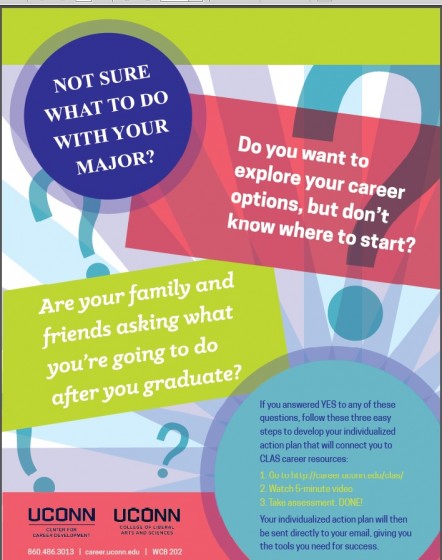
Working for the Center for Career Development at UConn, and having a master’s degree in higher education, I firmly believe in the value of students’ engagement in college. From Chickering’s Theory of Identity to Astin’s Theory of Student Involvement, my education was founded strongly in theories that support the positive correlation between college students’ engagement on campus with higher retention rates, greater self-efficacy, and higher graduation rates (Astin, 1984; Chickering, 1993). Given these benefits of student engagement, in my role as a career consultant, I encourage the students I meet with to get involved on and off campus, through research, internship, co-op, volunteer, and leadership experiences.
A recent study published by Gallup-Purdue University (Purdue University and the Lumina Foundation) has shown that college engagement not only leads to higher retention and graduation rates, but to greater worker engagement and over all well-being post-graduation. The study gauged wellbeing in 5 interrelated elements: purpose, financial, social, community, and physical. They found that the odds of thriving in all areas of well-being are 4.6x higher if the person is engaged at work (Gallup-Purdue, 2015).
“The study found that support and experiences in college had more of a relationship to long-term outcomes for these college graduates. For example, if graduates recalled having a professor who cared about them as a person, made them excited about learning, and encouraged them to pursue their dreams, their odds of being engaged at work more than doubled, as did their odds of thriving in all aspects of their well-being. And if graduates had an internship or job in college where they were able to apply what they were learning in the classroom, were actively involved in extracurricular activities and organizations, and worked on projects that took a semester or more to complete, their odds of being engaged at work doubled as well” (Ray & Kafka, 2015).
